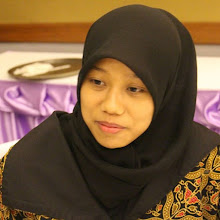Writing is a process that involves
at least four distinct steps: prewriting, drafting, revising, and editing.
a)
Prewriting
Prewriting is planning stage to decide axactly what will be writing
about and how can most effectively present the ideas (Little, 1985:112). From
the statement above, we can conclude that prewriting is anything you do before
you write on your paper. This stage include brainstorming, clustering,
strategic questioning, sketching, free writing, exploring the sense,
interviewing, and information gathering.
i)
Brainstorming
Based on a topic of writing performance, students call out as many
associations as possible while the teacher (or students) jots them down.
ii)
Clustering
Clustering can be considered the most important unsupervised
learning problem; so, as every other problem of this kind, it deals with
finding a structure ina collection of unlabelled data. A loose definition of
clustering could be “the process of organizing objects into groups whose
members are similar in some way”. A cluster is therefore a collection of
objects which are “similar” between them and are “dissimilar” to the objects
belonging to other cluster.
iii)
Strategic
questioning
Students answer a set of questions designed to guide their writing,
such as “What do you want to write about?”, “What is your goal?”,”What do you
know this topic?”,”What do you need to find out?”,”Who might want to read?”,”What
you are to write about?”.
iv)
Sketching
Students draw a series sketches that represent ideas for an essay.
For example: The Nasrudin clever man of short story.
v)
Free writing
Students write non-stop on a topic for a set time (e.g. five
minutes). They stop to read and consider what they wrote and then write
non-stop again for another set amount of time.
vi)
Exploring the
sense
Suitable for generating ideas for descriptive essay, the teachers
guides students through their senses by asking them to visualize, hear, smell,
aand feel a person or place.
vii)
Interviewing
Students interview each other or go outside the classroom to
interview people on a particular topic.
viii)
Information
gathering
Students collect information about a topic through library
research.
b)
Drafting
As the second stage in the writing process, drafting is a series of
strategies designed to organize and develop a sustained piece of writing. Once
planning has enable us to identify several subjects and encouraged to gather
information on thus subjects from different perspectives, we need to determine
what we can best accomplish in writing. We need to select one subject and
organize our information about it into meaningful cluster. Then, we need to
find connections among thus clusters and discover the relationship that links
the connections, according to McCrimmon (1984:10).
c)
Revising
Revising is a procedure for improving or correcting a work in
progress. As the third stage I writing process, revising a series of strategies
designed to re-examine and re-evaluate the choices that have created piece of
writing. After we have completed our preliminary draft, we need to stand back
from our text and decide what action would seem to be most productive. We may
have to embark upon global revision a complete re-creation of the word of our
writing. We may be able to begin local revision a concerted effort tp perfect
to smaller elements in a piece of writing we have already created, McCrimmon
(1984:11)
d)
Editing
According
to Gebhard (2000:230), Editing is required to recognize problems in grammar
(e.g. subject – verb disgreement, improper pronoun use, incorrect verb tense),
syntax (e.g. fragments and run – on sentences), and mechanics (e.g. spelling
and punctuation errors). Some students can become lost in thought with editing
so much that they equate good writing with correct grammar, syntax, word
choice, and mechanics rather than with the expression of meaning of which
editing is simply a part.
References:
Vinahari, Risqi. (2011). The Effect of Pair Correction on Writing Performance of the Second Grade Students at MTs Nurul 'Ula Jamsaren Kediri. Skripsi, English Department the Faculty of Teacher Training and Education Nusantara PGRI Kediri University.















0 comments:
Posting Komentar